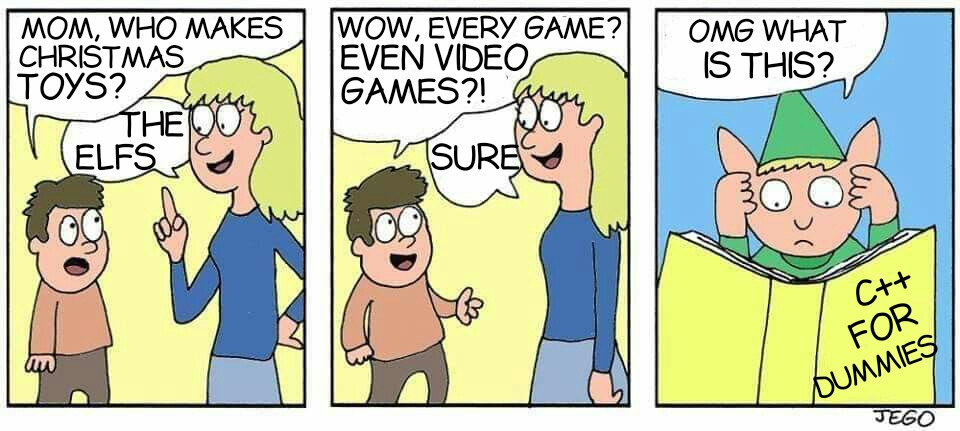C++ is standardized by the international standards body ISO, so one might expect it to be similar across different operating systems. Ironically, it is the only popular programming language that doesn't provide a consistent cross platform experience.
Some examples of incompatability
- The global namespace is littered differently across platforms. Can
you use an innocent looking name like
Point?maxoften breaksstd::maxin Visual Studio, whilestd::max<int>or(std::max)work fine
- Which standard library functions are available depend on your
compiler version. Use
std::gcd? Your code won't work on Visual Studio 2015- Some things are available under different names, like
std::arrayvsstd::tr1::array - While not unique to C++, it does have it much worse because due to a lack of package management, developers are encouraged to use the standard library as much as possible
- Some things are available under different names, like
- Xcode limits usage of C++ features if you wish to support older macOS versions
- Standard C constants like
M_PIare missing in Visual Studio unless you#define _USE_MATH_DEFINESbefore#include <math.h>- As a consequence, changing the order of includes often breaks compilation!
- Want to use
__has_includeto conditionally compile parts of your library? It's only available in C++17 so check__cplusplusto see if you can use it. But in VS it doesn't really tell you the language version so be sure to check_MSC_VERtoo.. - Equivalent attributes have different syntaxes -
__attribute__((aligned(32)))vs__declspec(align(32)) - Run-time crashes in Windows upon using
dynamic_castwith virtual inheritence while they work fine on macOS
How did we get there
The original sin - compatibility for your soul
C++ owes its success to being a superset of C, which made the transition easy for users of the popular systems language of the time.
There are many choices to make when designing a language, and the choices should work together if we want to reach a cohesive and sensible design. By inheriting all of C's choices, C++ handicapped its ability of doing this.
C++ has went so far that even its own name is a reference to a C++ anti-pattern.
Embrace, extend, and extinguish
Microsoft of the 1990s and early 2000s famously used the EEE strategy in the browser wars.
They have clearly also used it in the PL/OS wars:
- Make Visual Studio the best IDE for C++, gain users, and gradually break compatability with other implementations
- Code developed in the IDE will not work in other OSs, less software for those means users will keep preferring Windows
- Profit!
Complicated standards are bug prone
We all know that programming is difficult. And standartisation is a form of programming. Relatively simple standards like the shapes and sizes of screws can be implemented successfully, but implementing a complicated standard like C++ without errors is unfeasable.
What's next
C++ is currently the king in some industries (games, audio) because no other popular language addresses their needs. Sadly, I don't see this changing in the near future.
Perhaps one day Rust, Pony, D, Zig, Jai, or something that I haven't heard about will overtake C++'s throne. Let's hope, anything but this!
Misc
r/cpp discussion
- Removed mistake from the list after getting corrections from mjklaim and encyclopedist
- Image source: Le Gregman Show, translated by Monjipour


